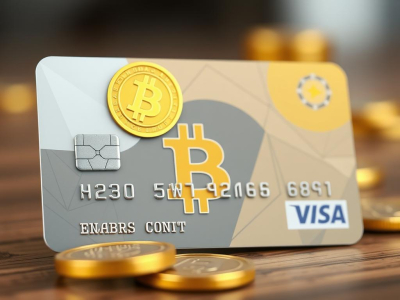
For anyone serious about online transactions, privacy coins offer a compelling solution to ensure anonymity. These digital currencies leverage advanced cryptography to obfuscate transaction details, protecting user identities and enhancing security.
The core technology behind these coins is the blockchain, which allows for secure and transparent transactions while maintaining the necessary level of confidentiality. Unlike traditional cryptocurrencies that may expose user data, privacy coins like Monero or Zcash utilize sophisticated methods such as ring signatures and zero-knowledge proofs to safeguard sensitive information.
If you value your financial privacy, integrating privacy coins into your transaction strategy is advisable. They not only facilitate secure exchanges but also empower users by prioritizing their right to keep financial activities private in an increasingly surveilled digital landscape.
What Are Privacy Coins?
Privacy coins are digital currencies designed to enhance confidentiality in transactions through advanced cryptographic techniques. Unlike traditional cryptocurrencies, privacy coins obscure transaction details, ensuring that sender and receiver information remains anonymous. Popular examples include Monero, Zcash, and Dash.
The underlying technology of these coins leverages blockchain to provide a secure environment for transactions while maintaining user privacy. Cryptography plays a crucial role, utilizing zero-knowledge proofs or ring signatures to validate transactions without disclosing sensitive information.
Decentralization is a key characteristic of privacy coins, as they operate on distributed networks that prevent any central authority from controlling or monitoring transactions. This aspect significantly enhances security, making it difficult for external parties to trace or link transactions back to individuals.
When considering the use of privacy coins, users benefit from enhanced confidentiality in their financial activities. However, it's essential to be aware of regulatory scrutiny surrounding these assets in various jurisdictions due to their potential misuse for illicit activities.
In summary, privacy coins offer a unique solution for those prioritizing anonymity in their transactions while maintaining the advantages of blockchain technology. Understanding their mechanics is vital for anyone looking to navigate the complexities of secure digital payments.
How Do They Enhance Anonymity?
Privacy coins utilize advanced cryptography to ensure transaction details remain confidential, thereby enhancing user anonymity. Unlike traditional cryptocurrencies, which often link transactions to public addresses, privacy coins obscure this information through various techniques.
Decentralization is a cornerstone of privacy coins, allowing users to transact without reliance on central authorities. This structure minimizes the risk of data breaches associated with centralized databases. Each transaction is recorded on a blockchain, but the identities of the parties involved are hidden.
Techniques such as ring signatures, used by Monero, combine multiple signatures into one, making it impossible to determine which signature belongs to the actual sender. This method significantly boosts transaction privacy. Similarly, zk-SNARKs employed by Zcash enable shielded transactions that conceal sender and recipient information entirely while maintaining validity on the blockchain.
The result is heightened security for users seeking confidentiality in their financial dealings. Transactions made with privacy coins do not leave traces that can be analyzed or linked back to individuals, thus protecting personal data from surveillance and unwanted exposure.
This architecture fosters an environment where individuals can engage in transactions without fear of external scrutiny or profiling. As privacy concerns continue to escalate globally, these features position privacy coins as vital tools for those prioritizing financial confidentiality and control over their digital identities.
Popular Privacy Coin Examples
Monero (XMR) stands out in the privacy coin sector due to its robust use of cryptography. It employs ring signatures and stealth addresses, ensuring transactions remain confidential. Monero's focus on decentralization enhances its security, making it a preferred choice for users prioritizing anonymity.
Zcash (ZEC) offers an innovative approach with its zk-SNARKS technology, allowing users to selectively disclose transaction details. This feature provides flexibility between transparency and confidentiality, appealing to both individual users and businesses seeking secure transactions while maintaining privacy.
- DASH: Known for its InstantSend feature, DASH also incorporates PrivateSend, which utilizes a mixing protocol to obscure transaction origins. This dual functionality facilitates quick transfers while protecting user identity.
- PIVX: A fork of DASH, PIVX focuses on community governance and fast transactions. It uses a proof-of-stake mechanism combined with zero-knowledge proofs to enhance privacy without sacrificing efficiency.
- Beam: Leveraging the Mimblewimble protocol, Beam offers strong confidentiality features by obfuscating the blockchain data itself. Its architecture supports scalability while ensuring secure transactions.
The selection of a privacy coin should depend on specific needs regarding security levels and transaction types. Each coin presents unique advantages in terms of anonymization techniques and usability within decentralized frameworks.
Challenges and Risks Involved
Privacy coins offer enhanced confidentiality for transactions but come with significant challenges. Regulatory scrutiny is one of the foremost issues, as governments are increasingly concerned about potential misuse for illicit activities. This can lead to restrictions that impact the usability of privacy-focused cryptocurrencies.
Another challenge lies in the technical complexity of blockchain implementations used by these coins. While they enhance anonymity, this often results in slower transaction speeds and higher fees compared to traditional cryptocurrencies. Users must weigh the benefits of privacy against potential delays in transaction finalization.
Security vulnerabilities present another risk. The cryptographic methods employed can be susceptible to attacks if not properly implemented. For instance, flaws in code or algorithms may expose user data or allow third parties to trace transactions, undermining the very purpose of privacy coins.
The decentralization aspect can also lead to fragmentation within communities, making it difficult to achieve consensus on upgrades or improvements. This could hinder development efforts and reduce overall confidence in the security of these currencies.
Lastly, a lack of awareness among users regarding safe practices can result in compromised privacy. If users fail to adopt robust security measures–such as using secure wallets or employing mixing services–they may inadvertently expose their transaction history.


You can be the first!